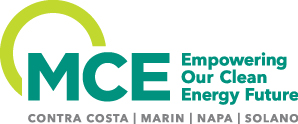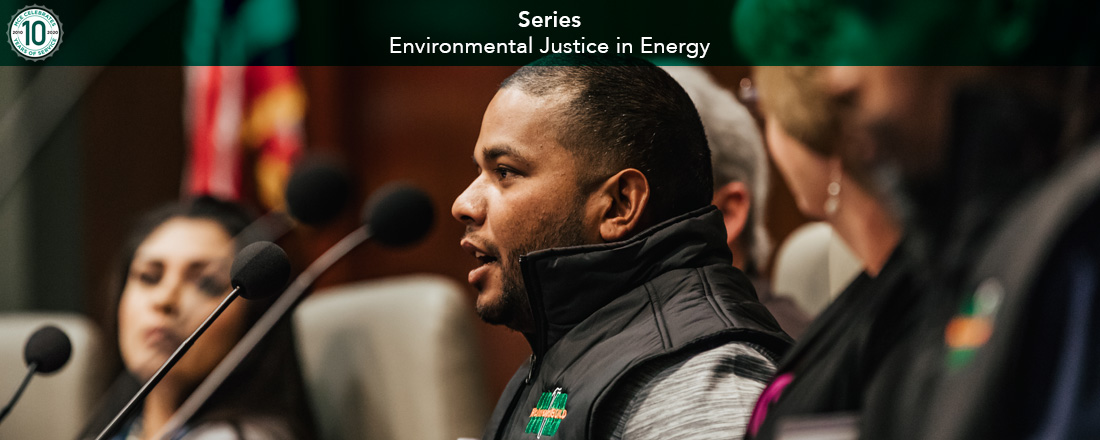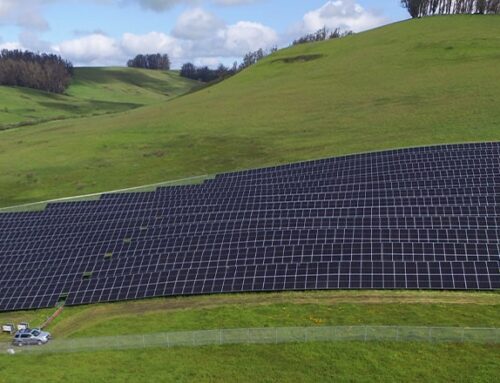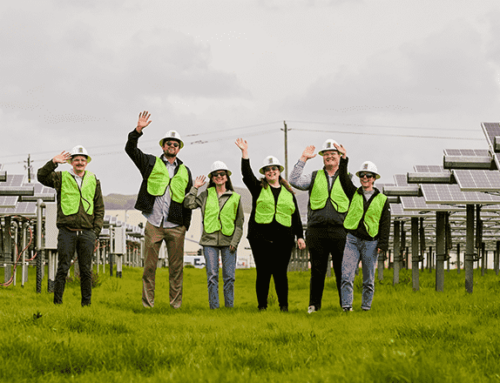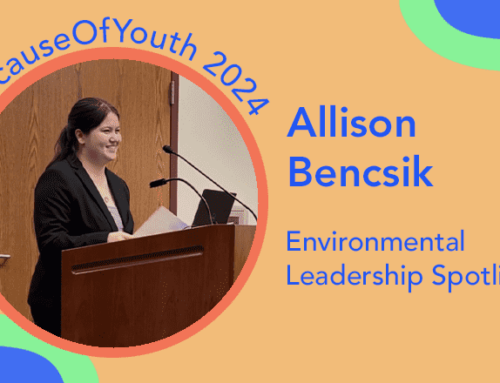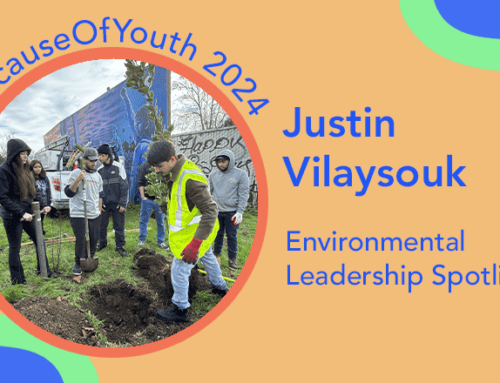This series explores the ways environmental justice is essential to MCE’s mission to address climate change by reducing energy-related greenhouse gas emissions with renewable energy and energy efficiency.
In order to stem the tide of the COVID-19 pandemic, California has been sheltering-in-place for months, closing businesses, and leaving record numbers of community members unemployed, underemployed, or informally employed. In this time of insecurity, many people may be searching for creative employment solutions. For some, this will mean returning to school. Others may be looking for training programs to re-tool and enter a new economy.
MCE + Community Partnerships = Training & Job Creation
For the last 10 years, we’ve developed a variety of workforce development opportunities through public-private partnerships to construct local renewable energy projects, install energy efficiency retrofits, build electric vehicle charging stations, and secure low-income residential solar installations. A few examples:
- MCE partnered with the Marin City Community Development Corporation to train over 60 disadvantaged community members and connect them to solar installation and energy efficiency jobs.
- In Contra Costa, MCE partnered with Rising Sun Energy Center to train youth to provide no-cost energy savings, water assessments, and “green house calls” in the cities of Richmond, El Cerrito, and San Pablo.
- MCE partnered with RichmondBUILD to help students develop construction, numeracy, and literacy skills, and later connect them with related jobs for MCE Solar One and an LED retrofit project for city streetlights.
- In Pittsburg, MCE coordinated the installation of a new call center through our contract with Calpine, and then partnered with Future Build (a county workforce development program) to train students on call center basics, call handling, energy data, and more. Graduates of the training were offered positions at the new call center.
- In American Canyon, MCE has partnered with Workforce Alliance of the North Bay to hire trainees for multiple large-scale solar installations.
- In all MCE communities, new renewable energy project developers must certify that 100% of employees hired during construction are paid at least prevailing wage and that at least 50% of the construction work-hours from its workforce (including contractors and subcontractors) are obtained from permanent residents who live within the same county.
- Across all communities, MCE’s Sustainable Workforce and Diversity Policy prioritizes fair compensation, local renewable development, union labor, training and apprenticeship programs, local businesses, and workforce initiatives in low-income and CalEnviroScreen-designated Disadvantaged Communities.
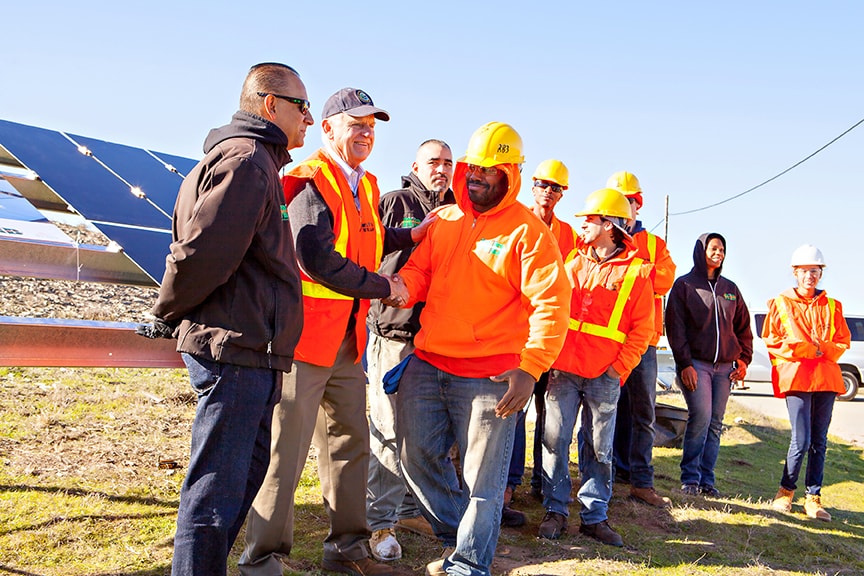
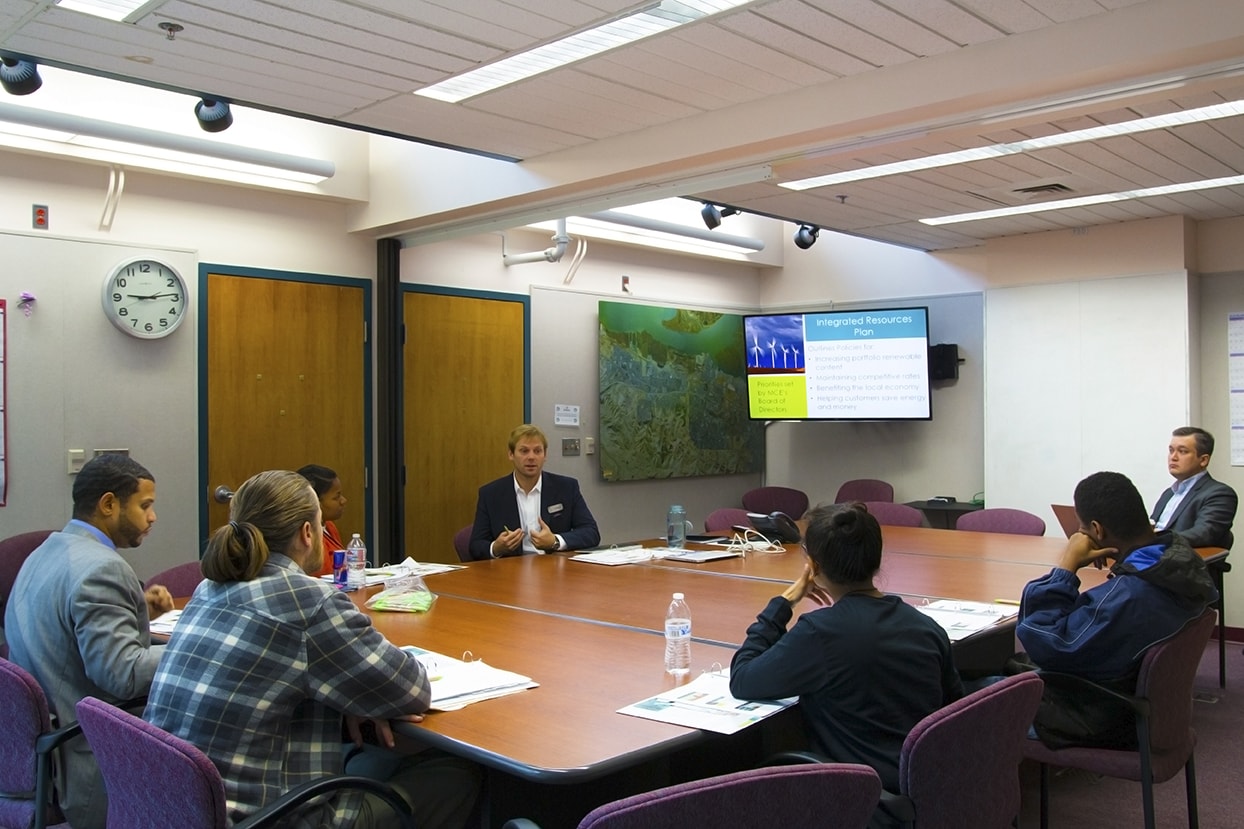
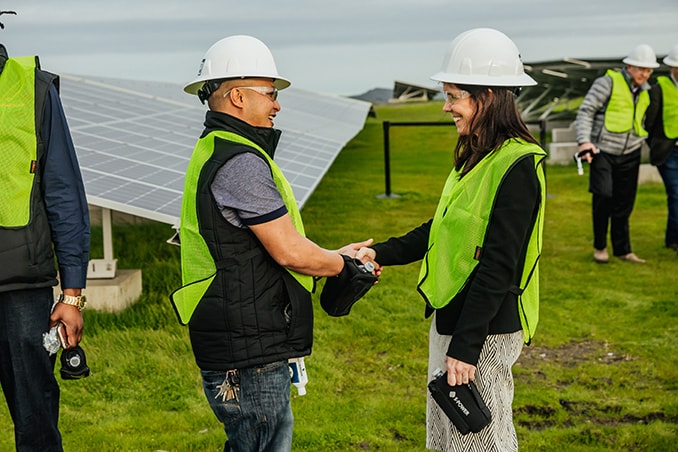
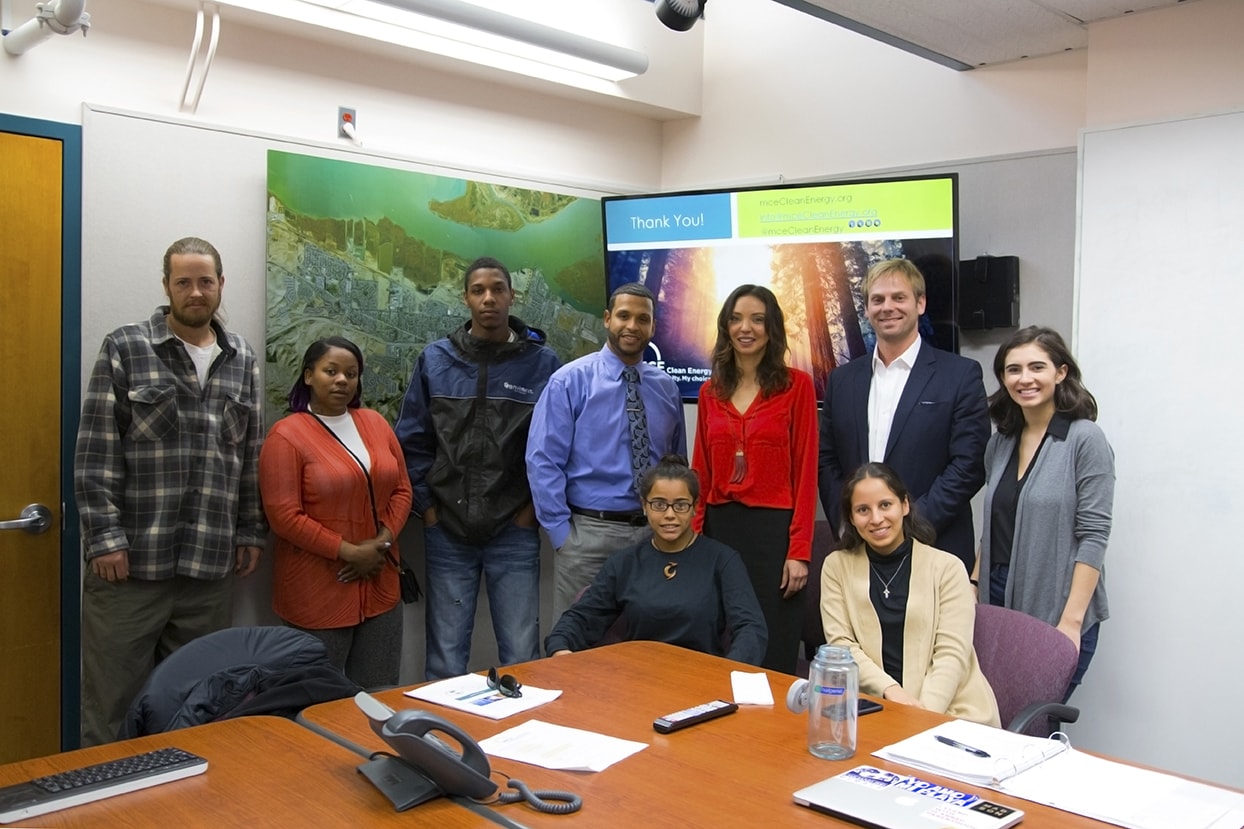
Local training and job opportunities formed in partnership with MCE’s community partners.
Constructing a Trainee-to-Employee Pipeline
Looking ahead and building on our workforce development efforts to date, MCE is focused on developing a longer-term pipeline of green job opportunities for our community members, strengthening the local economy, and contributing to a just transition to a clean energy economy. This is especially important in communities like ours, where the fossil fuel industry has long been the main employer for generations of families. To ensure the working class isn’t left behind in a decarbonized energy future, these workforce programs are an essential link to train for the skills needed to enter the green economy.
With $2.24M recently awarded from the California Public Utilities Commission (CPUC), MCE is working with our partner, the Association for Energy Affordability (AEA) to develop our new Workforce, Education, & Training (WE&T) program. This program will gather input from local nonprofit partners, community colleges, local government agencies, and the existing labor force to understand the challenges in the current market and how this is complicated by COVID-19.
“MCE has proven their commitment to workforce development in our community, and that is demonstrated again today with the launch of their Workforce, Education, and Training (WE&T) Program. With over $2 million in funding from the California Public Utilities Commission, MCE’s WE&T program aims to lower barriers to energy efficiency job training and build up the green collar workforce over the next couple of years. As an alternate MCE Board Director and Contra Costa County Supervisor, I am proud to see MCE’s mission of providing local economic and workforce benefits in action.”
Contra Costa County Supervisor Federal Glover (District 5)
Feedback from partners and stakeholders will inform MCE’s forthcoming mentorship and internship program to achieve the following goals:
- Upgrade the technical expertise of our existing contractor workforce on energy efficiency and electrification technology.
- Fund the training of multiple cohorts of job-seekers.
- Match qualified job-seeker trainees with the trained contractors and pay for a local internship in a “learn and earn” model.
- Provide project site opportunities where the mentor and intern can install efficiency measures while helping MCE customers increase the efficiency, health, and safety of their homes and businesses.
As a first step for launching the WE&T Program, MCE has begun outreach to local partners to start identifying needs, gaps, and opportunities for contractors, jobseekers, and other stakeholders in training and recruiting.
“With regard to programs that match job seekers to our company, the experience has always been mutually beneficial. As a potential employer, we meet job trainees who are serious about getting into the HVAC and home performance industry. The best are naturally mechanically inclined and enjoy the work immensely. Job seekers gain hands-on experience in a technical trade that provides a dependable career path, continued training, and the ability to quickly move up through the ranks. We at Eco Performance Builders look forward to welcoming the next cohort.” Keith O’Hara, MCE contractor and future WE&T participant
Long term, MCE hopes to solidify this trainee-to-employee pipeline so we can continue investing in the technical trainings, on-ramps to career pathways, job security, and economic health of our communities. For more questions about this program, please reach out to jgreen@mceCleanEnergy.org.
